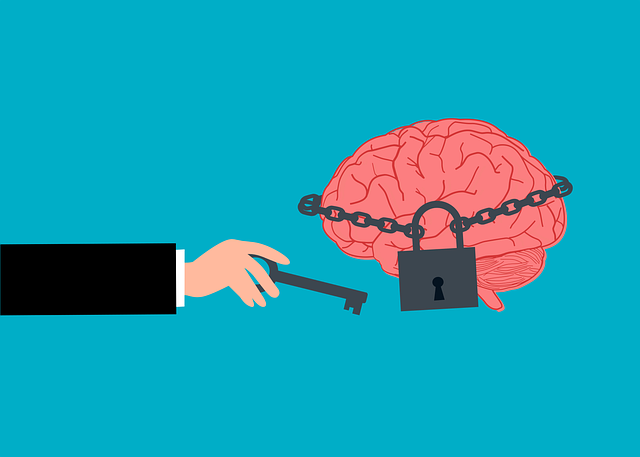Parker Cognitive Processing Therapy (PCPT) is an effective therapeutic approach that builds resilience by identifying Resources, Factors, and Mechanisms (RFM) influencing individuals' coping abilities. It strengthens personal resources, modifies negative thought patterns, promotes self-compassion, and enhances cognitive processing skills. Combined with Resilient Focus Measurement (RFM), structured coping skill assessment, mindfulness meditation, and social skills training, PCPT offers a holistic strategy for emotional regulation, stress management, and improved well-being, particularly beneficial for individuals at risk of stress, anxiety, or burnout.
Resilience is a vital asset in navigating life’s challenges. This article explores an innovative approach to building resilience through the integration of the Resilient Factor Model (RFM) and Parker Cognitive Processing Therapy (PCPT). We’ll delve into how PCPT, a powerful therapy, offers practical exercises for enhancing cognitive processing, thus fostering adaptability and resilience. By combining these strategies, individuals can develop effective coping mechanisms, improving their overall well-being. Discover actionable tips to harness the power of RFM and PCPT for a more resilient mindset.
- Understanding RFM and Its Role in Resilience Building
- Implementing Parker Cognitive Processing Therapy (PCPT) for Effective Exercises
- Strategies for Success: Tips to Enhance Resilience Through RFM and PCPT Integration
Understanding RFM and Its Role in Resilience Building

Resilience is a crucial aspect of mental well-being, enabling individuals to navigate life’s challenges and adversity with strength and adaptability. Parker Cognitive Processing Therapy (PCPT) offers a comprehensive framework for understanding and enhancing resilience. RFM, a key concept within PCPT, refers to the interplay between Resources, Factors, and Mechanisms that contribute to an individual’s ability to cope and bounce back from difficult experiences.
By identifying and strengthening personal resources, such as social support networks or coping strategies, individuals can better manage stressful situations. The therapy also emphasizes the importance of understanding and modifying negative thought patterns and beliefs, often referred to as factors, which can cloud judgment and hinder resilience. Additionally, cultivating compassion towards oneself and others, alongside empathy-building strategies, are integral components of PCPT designed to boost confidence and promote a sense of connection, further strengthening one’s resilience.
Implementing Parker Cognitive Processing Therapy (PCPT) for Effective Exercises

Implementing Parker Cognitive Processing Therapy (PCPT) offers a powerful approach to resilience-building exercises, especially in various therapeutic settings. This therapy focuses on enhancing an individual’s cognitive processing abilities, enabling them to navigate challenging situations more effectively. By utilizing PCPT, therapists can facilitate exercises that target specific cognitive processes, such as attention, memory, and problem-solving. These exercises are designed to improve clients’ ability to process information accurately, make better decisions, and develop more adaptive coping strategies.
The integration of PCPT into resilience training is particularly beneficial for individuals dealing with stress, anxiety, or those at risk of burnout. Social Skills Training, as a component of PCPT, equips participants with the tools to interact more effectively in social contexts, fostering a sense of belonging and support. This, coupled with Stress Management techniques learned through exercises, enables individuals to regulate their emotions and maintain resilience in demanding situations.
Strategies for Success: Tips to Enhance Resilience Through RFM and PCPT Integration

Implementing strategies that combine Resilient Focus Measurement (RFM) and Parker Cognitive Processing Therapy (PCPT) can significantly enhance an individual’s resilience. RFM offers a structured framework to assess and strengthen one’s coping skills, while PCPT provides powerful tools for reframing negative thought patterns. Integrating these approaches allows for a holistic improvement in mental health awareness, enabling individuals to navigate challenges with greater agility.
To maximize success, it’s crucial to incorporate regular mindfulness meditation practices alongside RFM and PCPT. This technique not only promotes relaxation but also cultivates present-moment awareness, helping to break free from unhelpful thought cycles. By combining these strategies, individuals can build a stronger foundation for resilience, fostering better emotional regulation and overall well-being.
Incorporating Parker Cognitive Processing Therapy (PCPT) into resilience-building exercises through RFM (Recollection, Feeling, Meaning) techniques offers a powerful approach to enhancing mental fortitude. By focusing on understanding and processing past experiences, individuals can develop effective coping strategies for the present and future. This integrated method not only empowers folks but also ensures long-lasting resilience in various life challenges.














